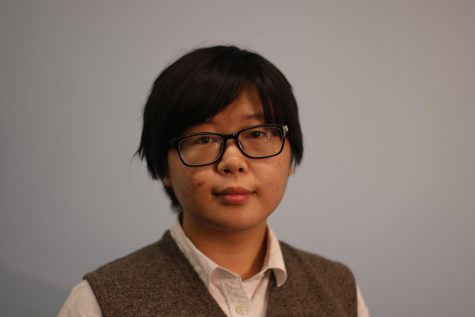Kim: Into the Observer’s process
December 6, 2019
Unless I wait 50 years for the 100th anniversary, this will likely be my last article for The Observer. I’ve been privileged to be a part of this publication for over two years now as a writer, copy editor and director of print—but because of my position on the editorial board, people have come to me with their issues with The Observer. So before I graduate, I’d like to address some of their concerns.
The Observer occasionally has misprints, whether they are names, small factoids or inaccurate representations. I hope that you can understand that we really do try, and that mistakes are nearly unavoidable even in major publications. Though our editorial board is smaller than many other colleges, our editing process is one of the most intense, based on what I and other representatives of The Observer learned at national college journalism conferences. In addition to a section editor, we have copy editors and fact checkers, and the director of print or the executive editor also looks at the article for the final copy. But things slip through. That’s when we print retractions above the staff box in the opinion section. We’re willing to own up to our mistakes when we see them.
As for certain topics not being covered? The Observer is limited by its size and scope. Currently, we have 25 members on the editorial board and 28 staff writers. This isn’t enough to cover a campus of 5,383 undergraduate students, hundreds of student groups and countless events. We simply can’t cover it all. The only solution to that is to have more people write for us. We don’t print numerous in-house ads about looking for writers for no reason.
There’s also a silent bias in what issues we can cover because of what and who our staff is composed of. Diversity is important in newsrooms, and The Observer is predominantly a white and Asian group. This inevitably affects the content we write, but it’s not something we can correct until other students of color decide to join the team.
In the end, most of the issues that people have come down to apathy. People don’t care enough about the news, or even enough to pick up a copy of The Observer. But student newspapers are important. Student voices are important. The administration and the community read the student newspaper—even if students don’t—and it allows us to be in conversation with them. Newspapers connect students with events and news in the world around them, as well as expose students to new ideas and opinions. Within the organization, members hone their writing and editing skills in a semi-professional environment while also developing skills such as interviewing, AP style and Adobe InDesign.
But apathy isn’t so easy to fight. I certainly can’t do it myself, considering that I’m leaving. But to the people who have come up to me and asked why certain things at The Observer are the way they are: Please don’t just complain to me. I hear you, but I can’t make those changes myself. If you really want something to change, take action yourself. Write a strongly worded opinion article or something, if you’re so inclined.
Won Hee Kim is a fourth-year student graduating this semester.



